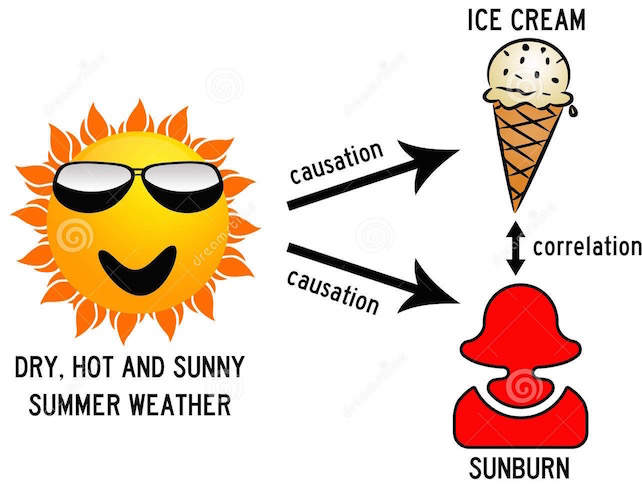Our minds crave simplicity.
The doctor says to take a pill. We eagerly agree because its simple. Until he tells us that the pill will cause us to lose our hair. Ouch! Now it becomes more complicated and not such a great idea.
Just look at the presidential election campaigns. Political viewpoints are compressed into 140 character Twitter feeds and 20 second soundbites. Ask ten people why they are supporting Donald or Hillary and nine will respond with one sentence.
“People are drawn to black and white opinions because they are simple, not because they are true. Truth demands serious effort and thought.”
~Donald Miller
Correlation v. causation
“Every time we see a link between an event or action with another, what comes to mind is that the event or action has caused the other.”*
That’s causation.
On the other hand “correlation is an action or occurrence that can be linked to another”, but “linking one thing with another does not always prove that the result has been caused by the other.”*
Our desire for simplicity drives us to conclude that one thing causes another simply because they occurred at the same time.

The ratings went up because we added new jingles!
The ratings went down because we had fewer traffic reports!
Our biases cause us to value things we know, mostly things inside the radio station, and to undervalue what we don’t know, mostly things outside the station. That’s why it is so easy to imagine how tweaking the Farm Report increased the ratings than consider how the meter/diary holder’s two-week vacation impacted our numbers.
Successful radio stations strive not for answers than are simple, but answers that are true. But, darn it, that demands effort and thought.
